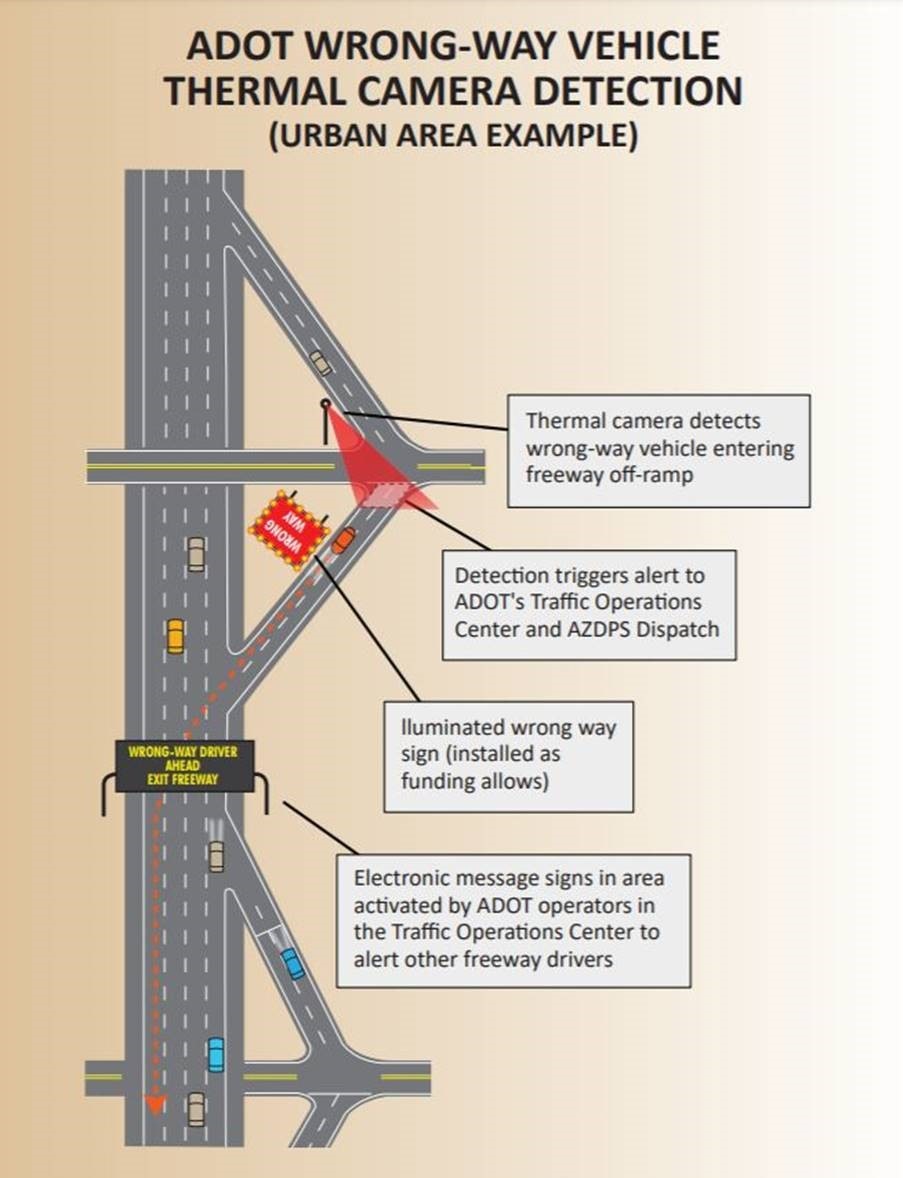
The Arizona Department of Transportation (ADoT) has expanded the use of a pilot thermal camera system to detect wrong-way drivers on Interstate 17.
Traditionally, highways authorities wait for drivers and other people who spot wrong-way driving to make a 911 emergency call.
But the I-17 pilot immediately sends alerts provided by thermal camera detection, resulting in faster response times by law enforcement, according to ADoT.
Its report includes recommendations for components to be added at urban and rural locations as funding becomes available.

The system’s 90 cameras began operating in January 2018 and they have detected more than 100 vehicles traveling the wrong way, mostly on exit ramps and frontage roads.
The alert system features internally illuminated wrong-way signs with flashing LED lights along I-17 off-ramps.
At the same time, the system immediately alerts authorities, allowing law enforcement to respond immediately - while “Wrong Way Driver/Ahead/Exit Freeway” signs on overhead message boards warn other motorists.
ADoT also has converted thermal cameras already used on traffic signals at more than a dozen interchanges to send alerts to the traffic operations centre and the Arizona Department of Public Safety when wrong-way vehicles are detected.
“The I-17 pilot system has delivered positive results and helped provide a road map for expanding use of technology to reduce the risk from wrong-way drivers,” said Dallas Hammit, state engineer and deputy director for transportation.
“I want to stress that thermal cameras can’t stop someone from being a wrong-way driver. But they are a big part of our efforts to reduce the risks associated with often-impaired wrong-way drivers.”
The $4 million I-17 pilot system was funded by Proposition 400, a dedicated sales tax for transportation improvements approved by Maricopa County voters in 2004.











